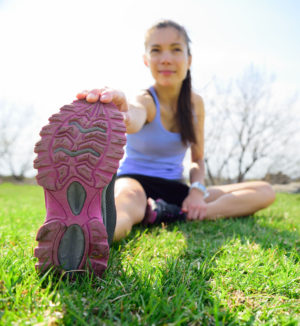 No matter what sport you play, your feet are going to play a critical role in your success. Whether you want to be quicker on skates, jump higher on the basketball court or simply get stronger, there are some things you can do in the offseason to improve your footwork no matter what sport you’re playing.
No matter what sport you play, your feet are going to play a critical role in your success. Whether you want to be quicker on skates, jump higher on the basketball court or simply get stronger, there are some things you can do in the offseason to improve your footwork no matter what sport you’re playing.
In this blog, we’re going to share some tips and ideas for improving your footwork during the offseason, but consider this a more general guide that can cover athletes of all ages and in different sports. Feel free to reach out to Dr. Silverman’s office for more individualized options, but for now, these tips will provide a general idea of how you can improve your footwork during the offseason.
Your Feet and The Offseason
Here are a number of tips to keep in mind so that your feet enter next season at peak performance:
1. Rest – At the conclusion of the season, you’re going to want to give your feet some well deserved R&R. Rest helps injured structures heal, and while you may not be dealing with an acute injury, you can bet that under the surface you’re dealing with the effects of cumulative microtrauma on your shins, ankle and feet. Give your feet some time off from stressful activity before jumping into an offseason program.
2. Cross Train – When it’s time to get back on your feet, consider doing an exercise routine or a sport that’s completely different than the sport you’re training for. It may sound odd, but challenging your body in a new sport will test and improve different muscle groups, and strengthening these muscles will have benefits in your original sport. It also prevents you from targeting the same muscle groups over and over again, which can lead to muscle imbalance in areas like the hamstrings or quadriceps and put you at an increased risk for injury. A new sport will test new muscles in your feet, which will also help with balance – helpful in any sport.
3. Balance Training – We touched on balance improvement in the above point, but it deserves it’s own spot. Improving your balance is going to help you in any sport, so look into some offseason balance training programs. You can find some on Google or reach out to Dr. Silverman to get some specific exercises. To be successful in your sport, you need to stay on your feet, and you can improve your likelihood of doing just that by working on your balance during the offseason.
4. Avoiding Impact-Based Exercises – Sometimes the best thing we can do for our feet is to be smart about how we exercise in order to avoid injury. If you want to strengthen your feet this offseason, look to activities that challenge the feet without overloading them with lots of stress. Although you’re told to land lightly on your feet, box jumps and other exercises where you’re landing repeatedly on your feet can lead to stress fractures and other issues. Consider resistance bands or swimming to improve muscles without impact against the ground.
5. Slowly Build Up – No matter what activity you’re participating in during the offseason, slowly build up your workload. Overdoing it at the outset is one of the quickest ways to suffer an injury. You wouldn’t run a marathon without training, and the same can be said about an offseason workout routine. Finally, as the season draws near, begin shifting back into sport-based training so you’re in midseason form by the time that tryouts or first practices roll around.